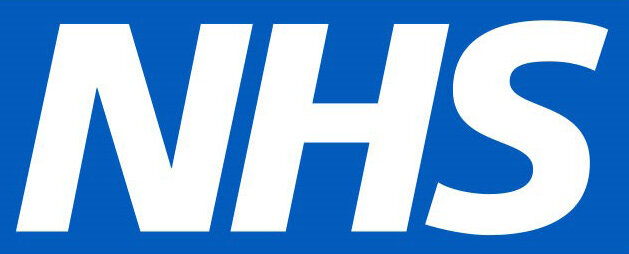What Can You Expect from the COVID-19 Vaccine if You’re Expecting
By Dr Yossi Adler, GP, Dr Teresa Kelly, Consultant Obstetrician & Susie Weisz, Midwife
At Chanukah, we remember the miraculous events that saved the Jewish people from destruction. The COVID-19 pandemic has been a time of darkness across the globe as loved ones have been lost, and millions of families have suffered the harmful, life-changing effects of the virus. In the early days of the pandemic, we, as a community, prayed for a vaccine to reduce the terrible harm the COVID-19 virus caused, and still can. Now we have safe and reliable vaccines, which have protected many families from the worst effects of the virus and have been proven to dramatically reduce its impact of causing serious illness and death. Our Jewish medical health professionals, Dr Yossi Adler, a GP in London, and Manchester-based Dr Teresa Kelly, a consultant obstetrician, and midwife Susie Weisz answer some of your questions about vaccination including if you’re planning a pregnancy or are pregnant.
Who is eligible for a booster?
“The government is currently offering the booster to anyone aged 40 and over and anyone aged 16 and over with a health condition that puts them at high risk from COVID-19. The booster is also being offered to health and social care workers as well as unpaid carers for an elderly or vulnerable person.” – Dr Yossi Adler
Why do children need to get vaccinated?
“My practice is recommending that all children aged 12 and over have the COVID-19 vaccine. While most children infected with COVID-19 experience mild symptoms, some do become quite unwell and some go on to develop serious multi-organ inflammatory disease. Even with children experiencing mild symptoms, they will need to self-isolate which will have major disruptions to the effective functioning of schools. After nearly 2 years of disruption, it is vital our children stay in school.”
“COVID-19 can affect anyone, regardless of their age, and we still do not fully understand the damage that can be done by this terrible virus. My colleagues are treating a growing number of young people who are living with ‘long Covid’ which has side effects such as extreme fatigue and weakness. Some young people are missing out on the things they want to do in life because of it, and this is heart-breaking. And, although the vaccine does not eliminate transmission, there is good evidence that it reduces it. Vaccination also reduce the risk of children infecting vulnerable grandparents and other members of the community at home or at the synagogue.” – Dr Yossi Adler
Is it too late to get my first dose?
“No, it is never too late, and it has never been easier. All you need to do is visit www.nhs.uk/covidvaccine or dial 119 which are free of charge. Or visit www.nhs.uk/grab-a-jab to find a convenient vaccine walk-in site near you (you do not even need an NHS number or to be registered with a GP for this).” – Dr Yossi Adler
Is COVID-19 disease serious in pregnancy?
“If you are pregnant and catch COVID-19 you may have a mild illness or no symptoms. But we have seen many more pregnant women becoming sick with COVID-19. Getting COVID-19 when you are pregnant increases the risk that you will be admitted to hospital, and the most recent data shows 1 in 5 of the most seriously unwell patients in intensive care with COVID-19 are unvaccinated pregnant women. In the later stages of pregnancy (after 28 weeks), people are at increased risk of becoming seriously unwell with COVID-19. Specifically, there is higher risk of admission to intensive care, premature birth, pre-eclampsia, and stillbirth.” – Dr Teresa Kelly
Will the vaccine give me or my baby COVID-19?
“The vaccine cannot give you or your baby COVID-19, but it will protect you both at a time that you are both vulnerable. There are no additional ingredients that are harmful to pregnant women or their babies in the vaccine.”– Dr Teresa Kelly
Can I try for a baby after being vaccinated?
“If you are trying to get pregnant, we do recommend that you get vaccinated. My colleagues in the fertility clinic often won’t start any fertility treatment, until someone is vaccinated as they don’t want them to become unwell when they are having treatment. While there have been reports of women finding that their periods have been disrupted after vaccination, the vaccine has not been found to be the cause of any period problems. The Human Fertilisation and Embryology Authority (HFEA) said there is no evidence that any of the vaccines affect the fertility of men or women. Anyone trying to have a baby as well as those who are thinking about having a baby should have the COVID-19 vaccine to protect themselves and their baby from the virus.” – Dr Teresa Kelly
I’m breastfeeding, can I have the vaccine?
“The COVID-19 vaccines are recommended for women who are breastfeeding. There is no need to stop breastfeeding at, or after, the time of the vaccine as the vaccine does not pass through breast milk.” – Susie Weisz
Where can I get more information and who can I speak to?
Chana, the leading UK fertility support organisation for the Jewish community, have an expert medical advisory panel who will be able to provide you with more information about getting vaccinated. Chana also supports couples with the emotional, practical, halachic, and financial challenges of infertility, miscarriage, and any reproductive health issue. Call Chana’s free confidential helpline on 020 8201 5774.






